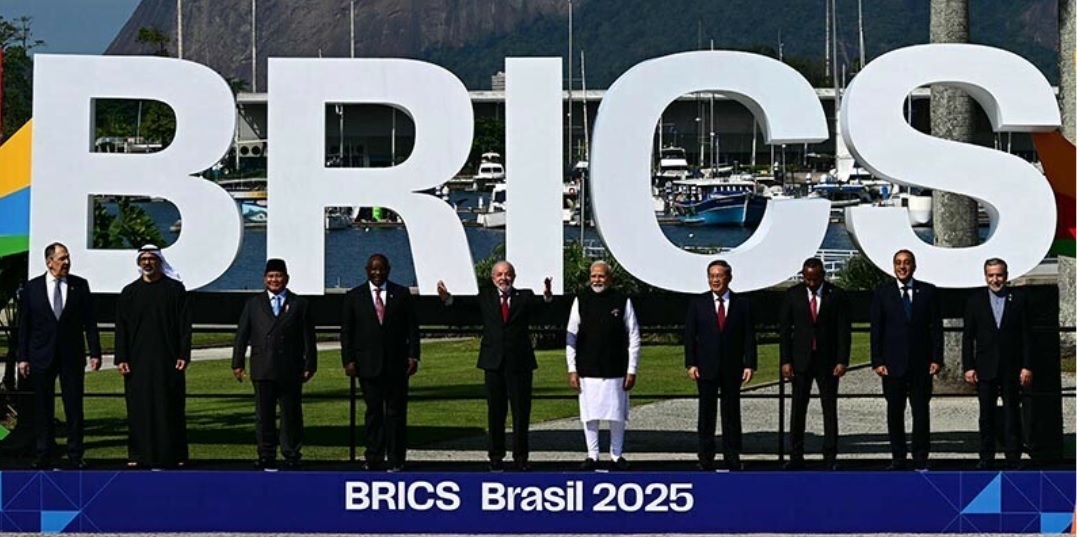BRASILIA, July 7 (TNF): Brics leaders condemned U.S. President Donald Trump’s tariffs and recent U.S.-Israeli strikes on Iran at their summit on Sunday.
The 11-nation bloc includes Brazil, Russia, India, China, South Africa, Iran, Saudi Arabia, and others. It represents about half the world’s population and 40% of global output.
Brics found unity against what it called “unilateral tariff” measures. A joint statement warned the tariffs could harm the world economy. The bloc avoided naming Trump directly.
Trump responded on social media Sunday night.
“Any country aligning themselves with the Anti-American policies of Brics will be charged an additional 10 per cent Tariff. There will be no exceptions to this policy,” he posted on Truth Social.
Brics also voiced support for Iran. Leaders condemned military strikes on Iran’s nuclear and other sites. Israel and the U.S. carried out those attacks.
In April, Trump threatened new duties on allies and rivals. He later delayed them after a market sell-off. He has warned of fresh tariffs unless deals are made by August 1.
The Brics statement avoided direct criticism of Trump or the U.S. This seemed aimed at sparing members like Brazil, India, and Saudi Arabia.
Brics began 20 years ago as a forum for rising economies. It is seen as a China-led counterweight to U.S. and European power.
But with new members like Iran and Saudi Arabia, unity is harder to achieve. Brics called for a peaceful two-state solution to the Israel-Palestine conflict. Iran, which rejects Israel’s existence, did not block the statement but voiced “reservations” to the hosts.
Saudi Arabia’s foreign minister skipped Sunday’s talks. A Brazilian official confirmed the absence.
Saudi Arabia is a top U.S. ally and a key buyer of U.S. arms.
The summit’s political weight was lessened by key absences. China’s Xi Jinping missed the meeting for the first time in 12 years. Russian President Vladimir Putin also stayed away. He joined by video link.
Putin said Brics is now a major force in global governance.
The summit also urged new rules for artificial intelligence. Leaders said rich countries should not control AI alone.
Today, U.S. tech firms dominate AI. But China and others are catching up fast.



